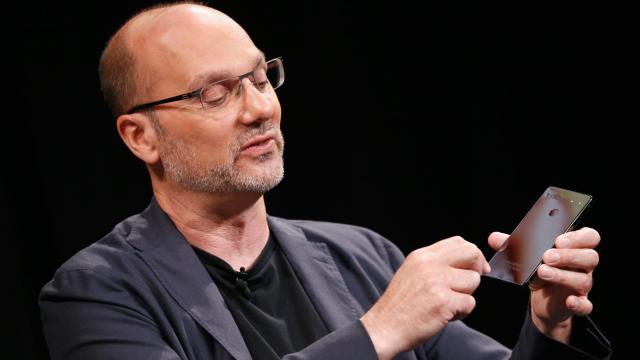Former Google executive Andy Rubin’s smartphone startup, Essential Products, is officially done after years of circling the drain.
The company announced Wednesday in a blog post that it was shutting down operations, and that the Project GEM smartphone concept Essential announced last fall “had no clear path” to becoming a consumer device.
Will anyone miss it? Probably not.
Essential was a buzzy hardware company back in 2017 when it released its first (and only) smartphone, the PH-1. The phone had some issues, particularly when it came to the camera software, but updates over time (and a steep price drop) made the PH-1 more appealing over time. No one bought the phone, but investors and tech industry insiders were excited to see what Rubin, considered the creator of Android, would do next. Rubin raised $US300 ($445) million to fund his efforts.
But then the New York Times reported in 2018 that Rubin’s exit from Google, which reportedly gave him a $US90 ($134) million payout, was due to credible sexual misconduct allegations. Rubin denied the report, but the fizzling interest in Essential accelerated.
The startup tried to recapture its early hype last October when Rubin tweeted images of a new phone with a “radically different form factor,” which looked like a smartphone vertically sliced in half. Project GEM, as the phone was called, sparked some interest due to its design and vertically oriented user interface, but mostly just made people wonder why Rubin was still trying to make Essential a thing.
Essential was a company built around Rubin’s reputation. After all, he spearheaded a mobile operating system that is now used on 80% of the world’s smartphones. But Essential’s only product was mostly not great in an incredibly competitive market, and its founder turned out to be deeply flawed at best and complete trash at worst. That’s not a sustainable business model. And now it is no longer.
